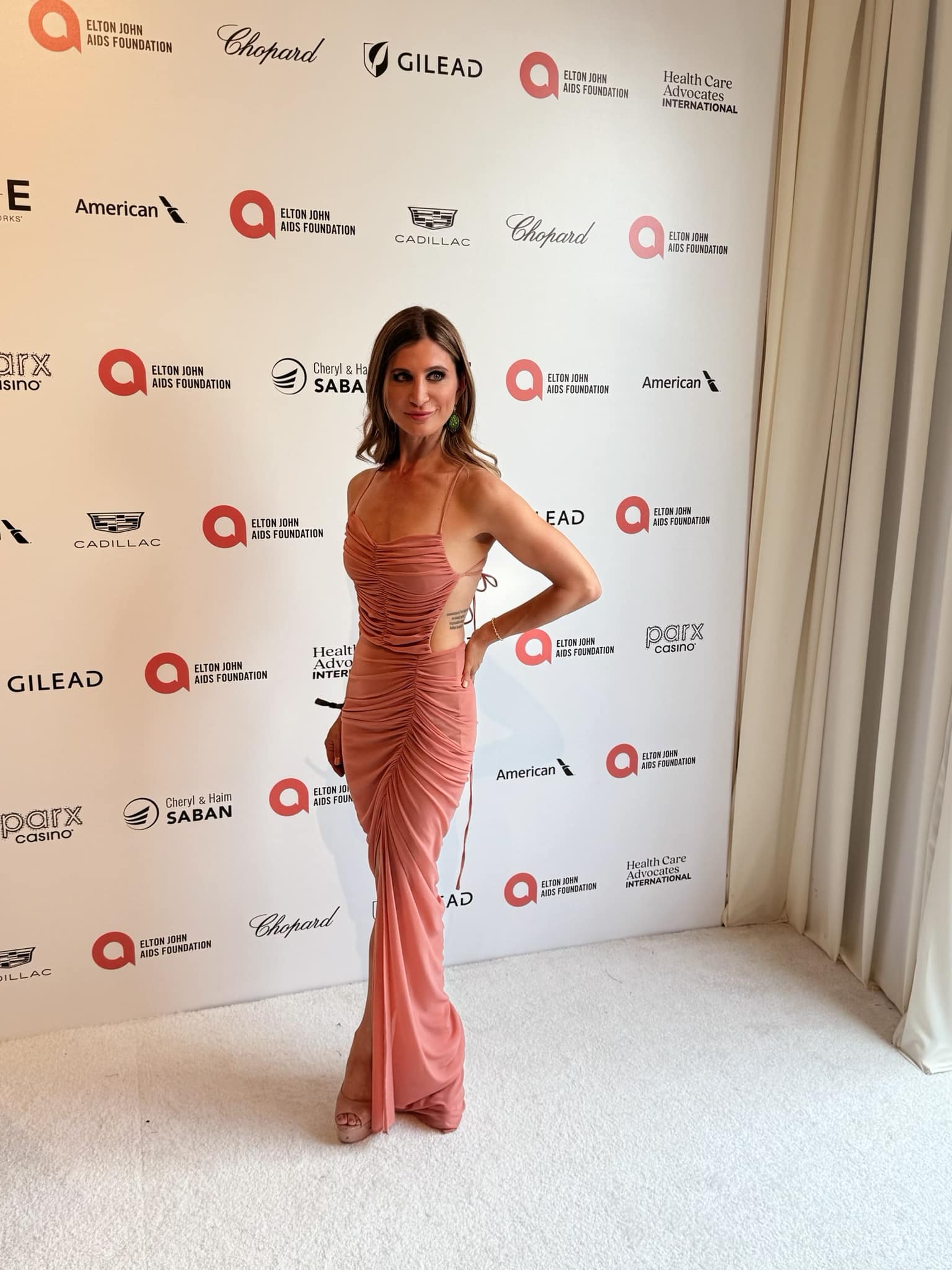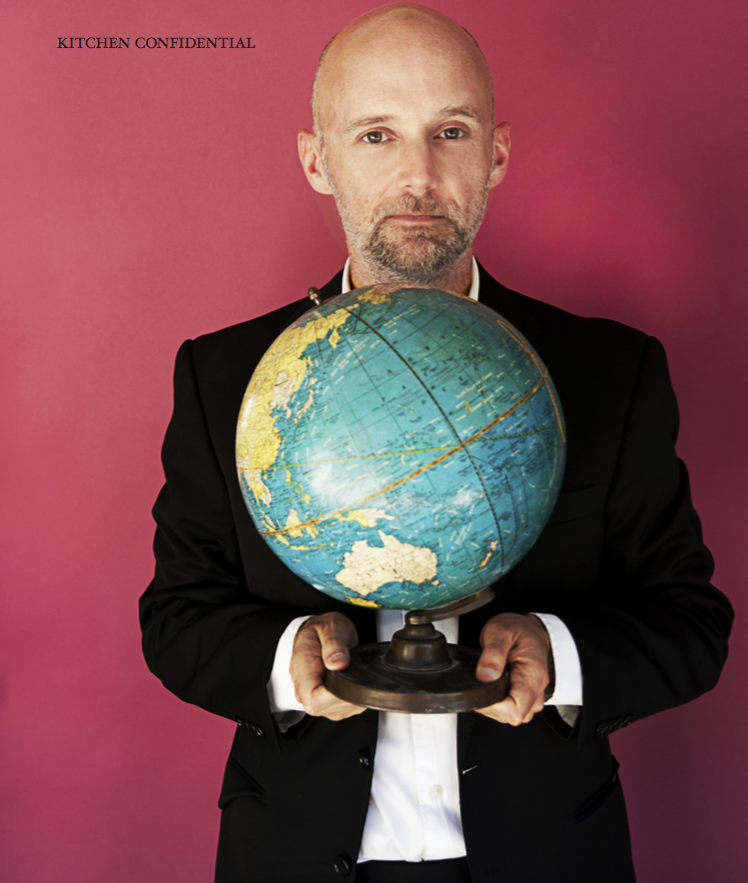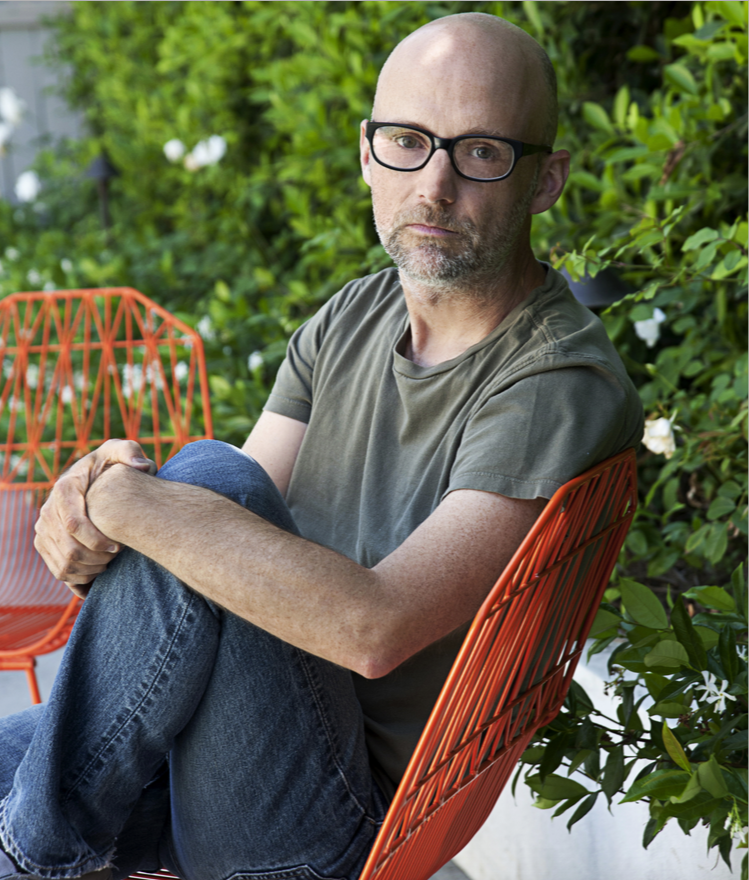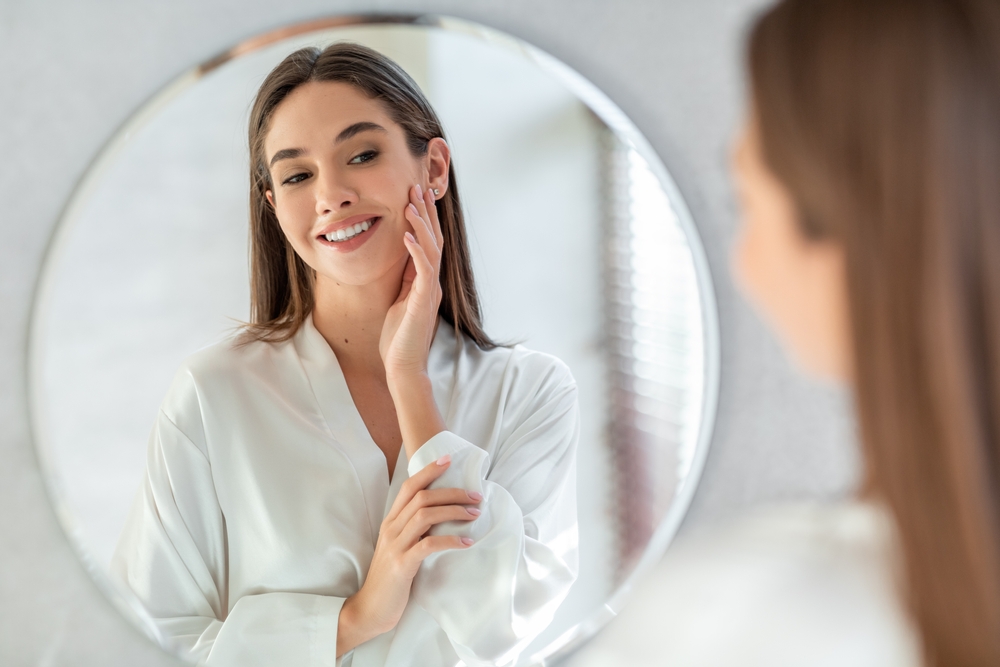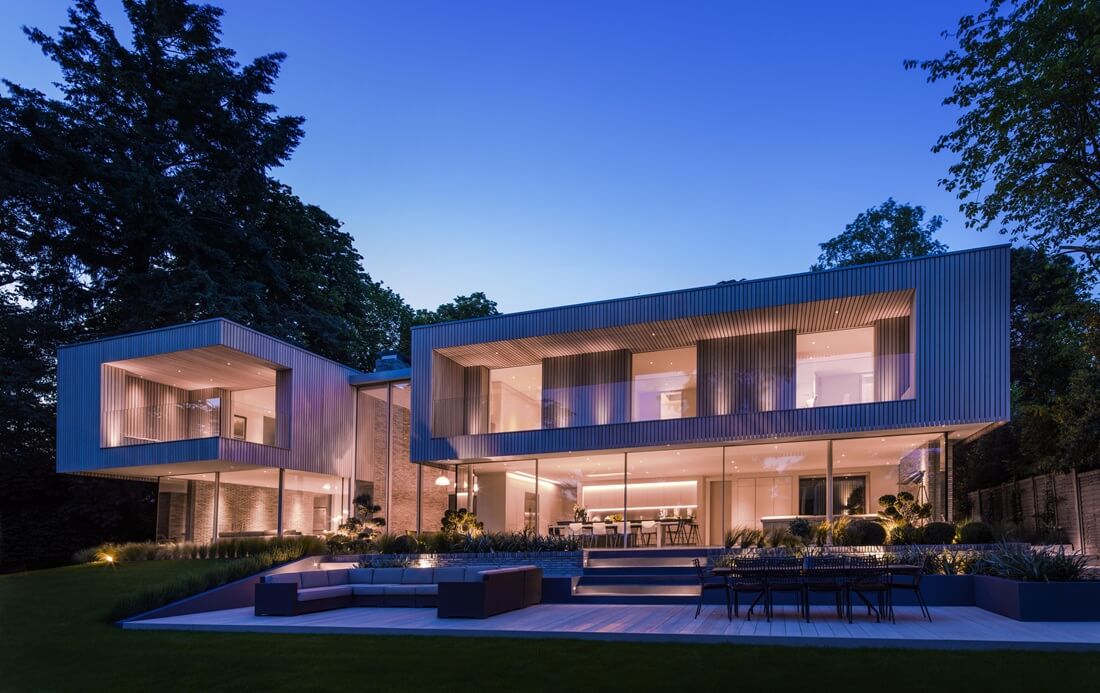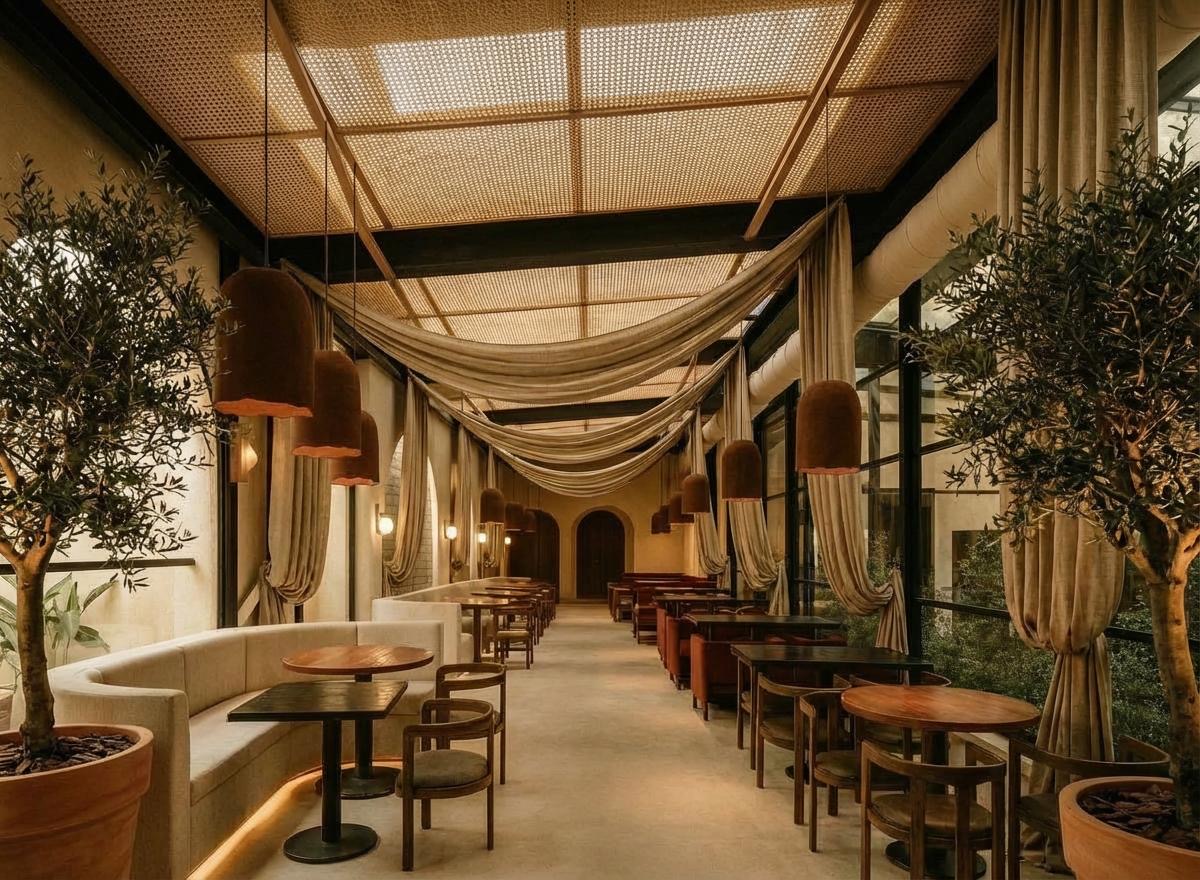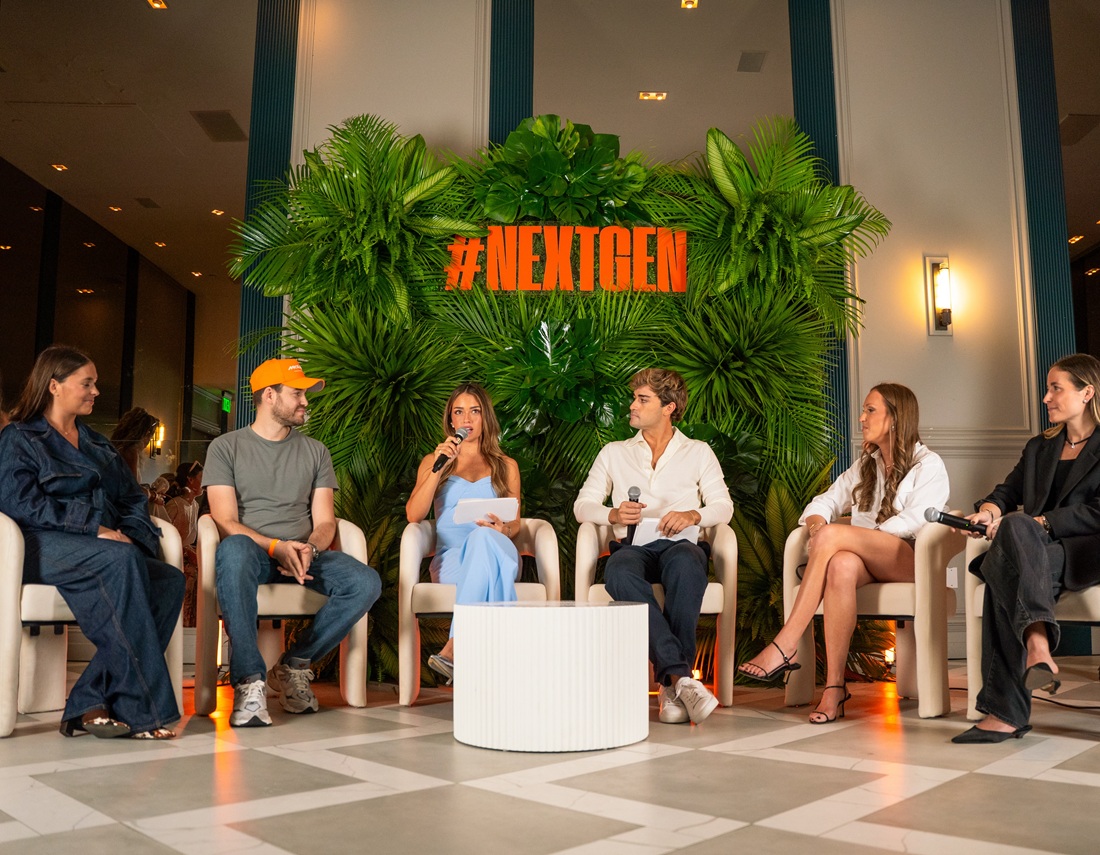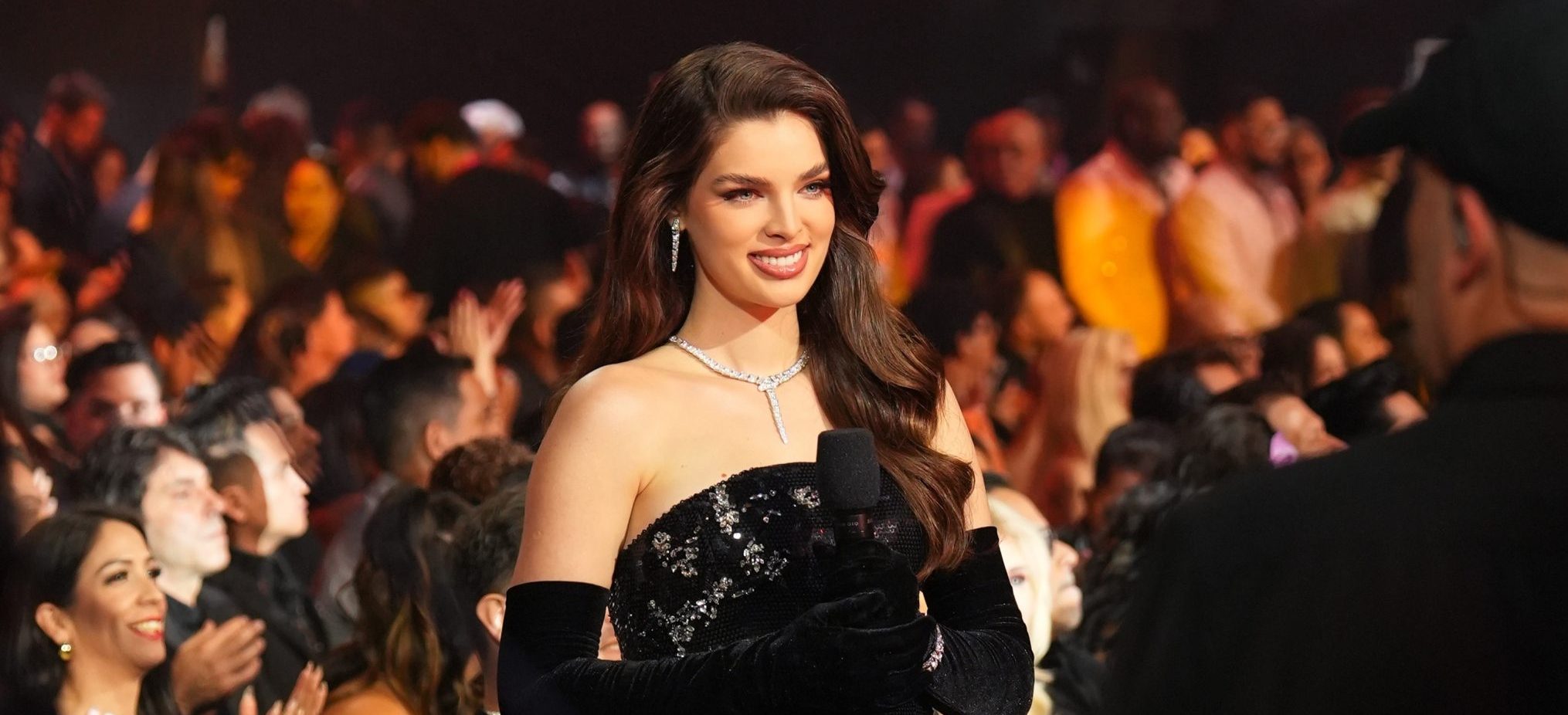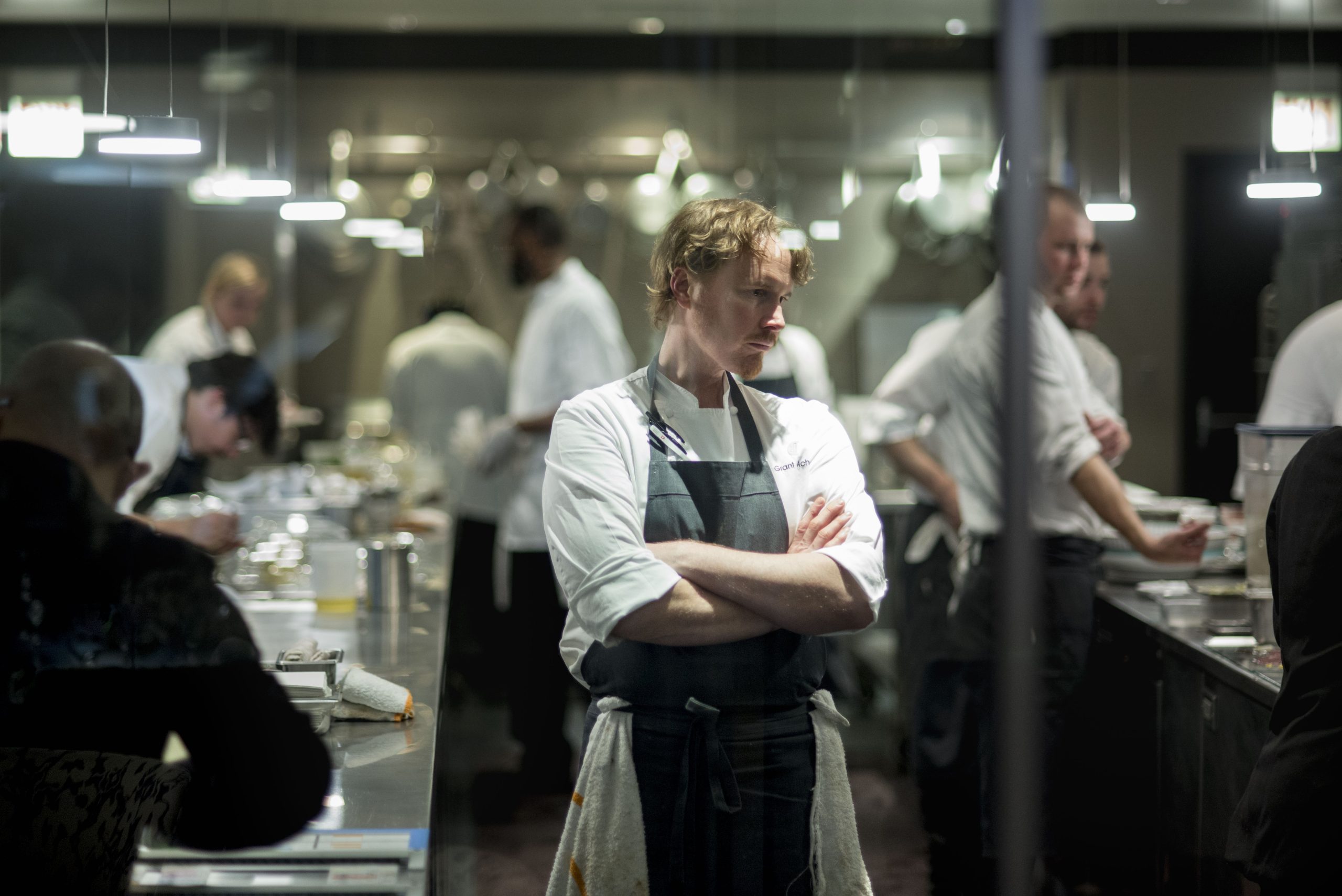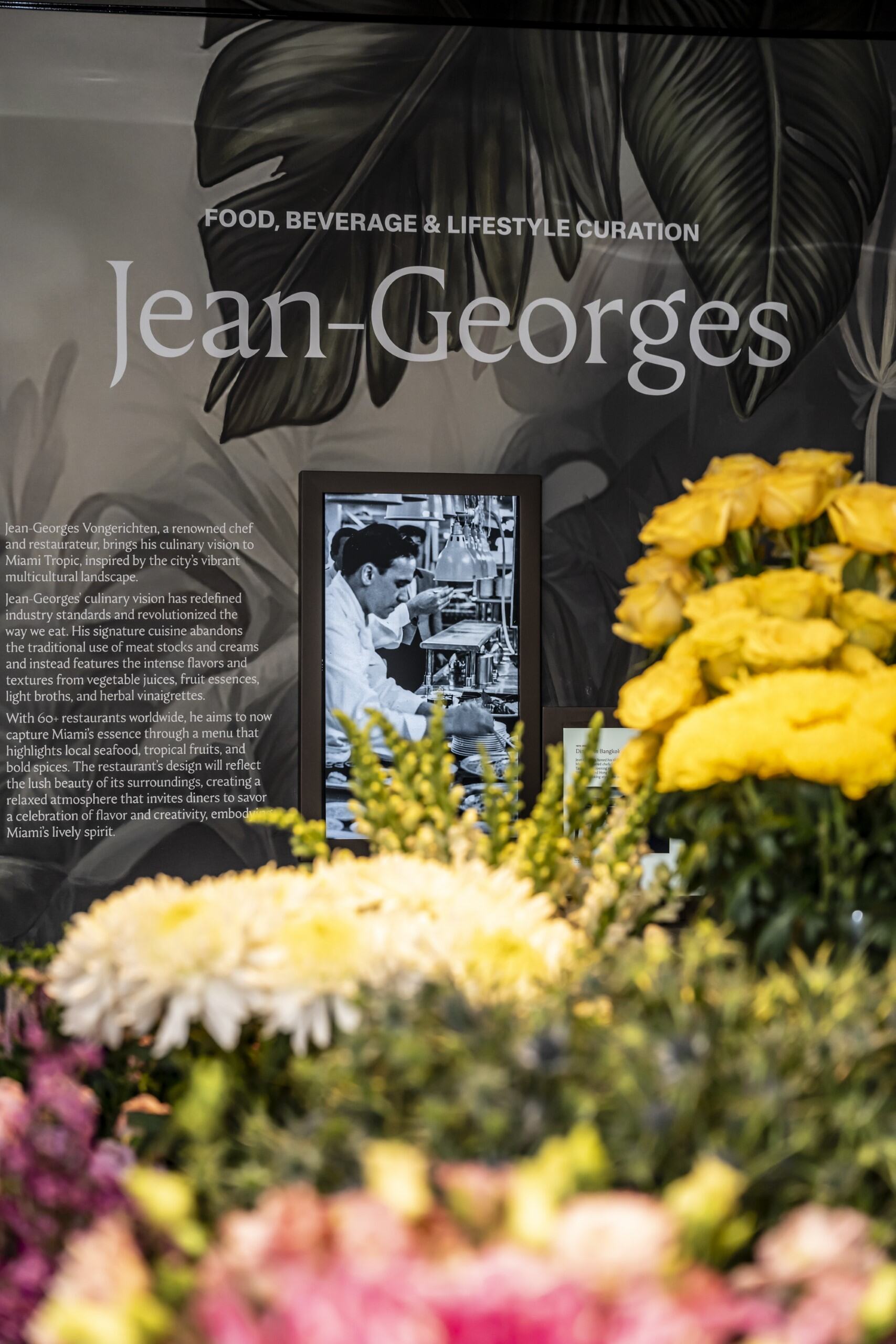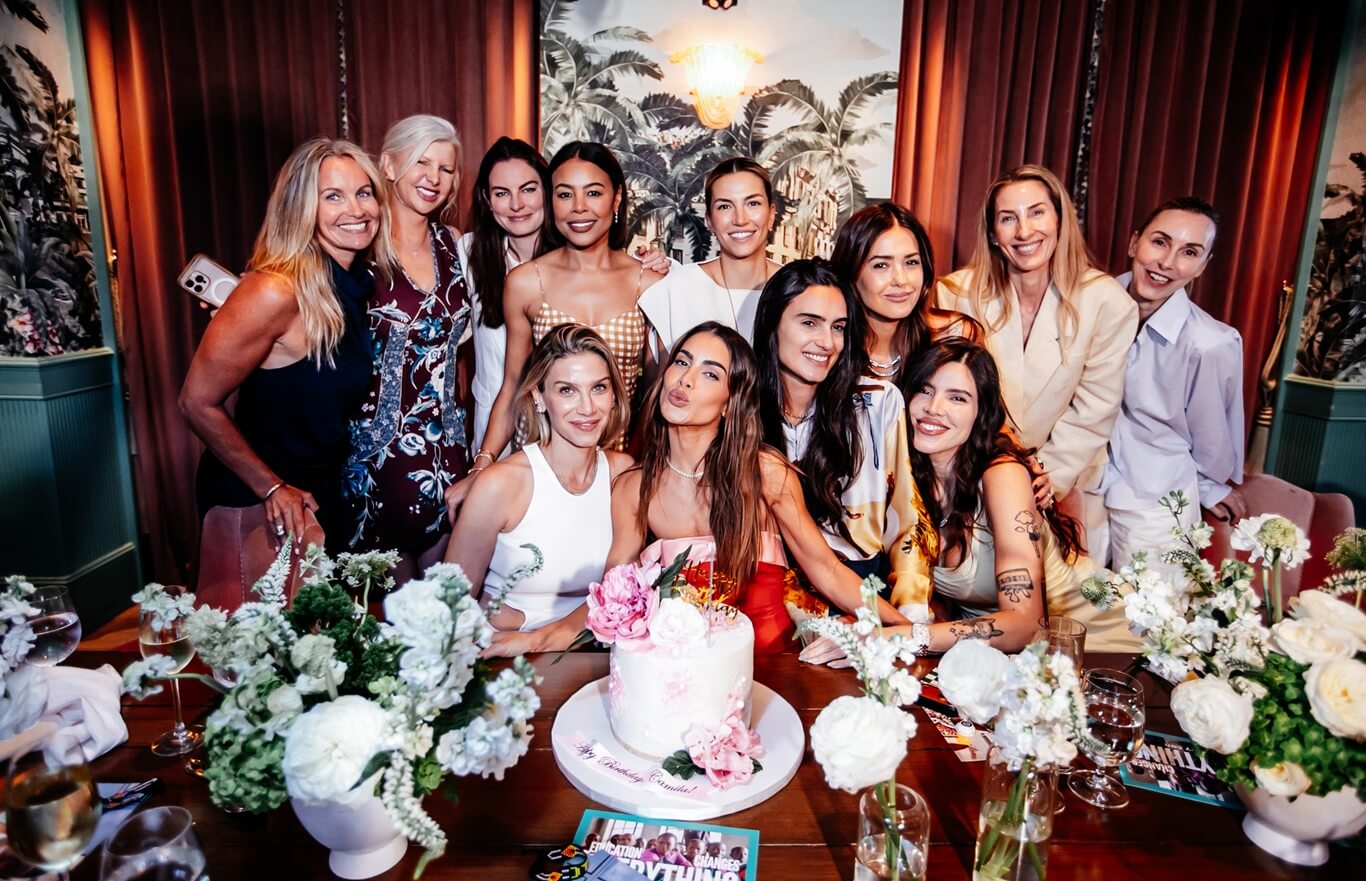Kitchen Confidential with Moby
Believe it or not, the reason that Moby decided to open a restaurant was its proximity to his home. Well, OK, that’s not entirely true: the Grammy-nominated DJ and songwriter also wanted to open an eatery that would serve as a melting pot for his primary interests including architecture, design, and veganism. Thus, little pine was born.
The Silver Lake-based eatery that officially opened its doors in November offers a 100 percent vegan, Mediterranean-influenced menu with fare that’s described as approachable, yet sophisticated, much like the 50-year-old musician himself.
Guests will discover a clean, mid-century modern design as conceived by Tatum Kendrick of Studio Hus with a mountain lodge vibe peppered with color accents of forest green and citrus. Sustainability is a theme here, naturally (pardon the pun); raw materials such as plywood, concrete, and ceramic tile are used for the countertop and tables. A pergola-sheltered patio accommodates the quintessential SoCal experience of alfresco dining, while a small retail space offering eco-sustainable housewares and gifts from Moby’s favorite artisans, artists and authors can be found at the front of the restaurant.
The restaurateur and PETA supporter welcomed us into his Eastside home to discuss little pine, why he’s campaigning for Hillary Clinton and his impending 13th studio album, giving us a taste of his earthiness face-to-face.
Let’s talk about little pine. Why did you favor that name over others?
The simple reason is, I like the word “little” and I really like pine trees. There’s something humble and unassuming about [the word little]. When I first moved here, I was having a conversation with a friend of mine who didn’t know L.A. very well, and I said, “Very broadly speaking, there are two Los Angeles’—the L.A. of palm trees and the L.A. of pine trees.” Generally, I gravitate towards the L.A. of pine trees–like Angeles National Forest–almost that old sort of Adirondack state park feeling. As it’s often the case if you make a creative decision, time passes and you look for other sort of facets that both justify and help explain the choice. There’s one other very esoteric reason, and it is that pine trees symbolically represent the pineal gland. It’s this tiny gland deep in your brain that looks like a pine cone.
Your restaurant sounds fairly unique: it’s part-art installation and part-nature-themed diorama.
What I’ve learned in the last few months is that Los Angeles is a really difficult place to open a restaurant. The bureaucracy, the permitting. Opening a business is inherently challenging anyway, but for all the things I love about Los Angeles, it’s not the most business-friendly place. My goal is to have beautiful food, be a wonderful place and do oddball little things like building dioramas on the roof.
Tell us about the menu. Is little pine completely vegan?
I have set [for] myself this goal of being 100 percent vegan and 100 percent organic. I feel like that draws a line in the sand that I’m not allowed to cross. If the restaurant is losing money and I’m tempted to have non-organic food, I can’t. I’ll have to figure out some other way of cutting corners. The main reason I wanted to open a restaurant is it’s close to my house, and in an almost lazy way, opening a restaurant enables me to satisfy a bunch of my interests in one place: architecture, design, food, organic farming, animal welfare, veganism and community.
What made you tackle something so different from your former New York teashop TeaNY?
I haven’t been involved in TeaNY in about 10 years, but one thing I’ve learned over the years is struggle and a degree of failure are often times the best predictors for success. TeaNY didn’t fail at all, but it really struggled for a while, and from that, I learned what not to do. If I do something that succeeds, I usually learn nothing from it. If I do something that fails, it can be really instructive. When something fails, you step back, take stock of what went wrong, and hopefully, when you do a similar thing again, you figure out how to avoid the pitfalls and mistakes. It’s about learning from failure.
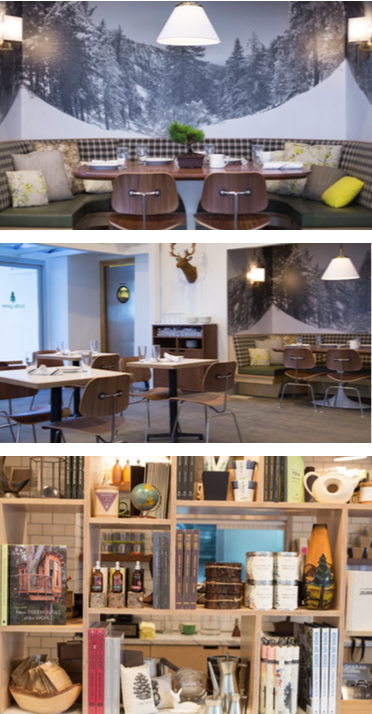
How do you lead a sustainable lifestyle?
Just being alive, we’re bound to mess things up a little bit. It’s hard to be a human and not cause some damage at some point. I see sustainability as being a really healthy, guiding principal. It’s not necessarily an orthodoxy, it’s more something to aspire towards, and to that end, I feel a little uncomfortable in my role as vegan evangelist because I don’t want to seem strident, but veganism is way more sustainable because you’re using fewer resources. I live and work in the same place, so I don’t really commute. I have an electric car. I’m a vegan. I don’t really ever use my air conditioning or my heat. When I bought [my] house it was all grass, so I tore up the grass and put down mulch, put down drip irrigation under the mulch and put in drop-tolerant plants. I’m not patting myself on the back for it; I’m just saying our actions have to reflect the environment [in] which we live.
You lived in the Wolf’s Lair compound for a few years. What made you decide to move?
When I moved here, I bought this crazy castle in Beachwood Canyon and I renovated it and I loved it, but pretty quickly realized it was way too much for one person; it was like 10 or 11 bedrooms. At one point, I had a lot of people staying over and I realized I didn’t like having 10 houseguests. So I sold it to a friend of mine and moved here [to Los Feliz], and pretty much this was all I was looking for. I wanted to be on the Eastside, I wanted to be able to walk out my door and get to Griffith Park easily, and I wanted a sunny, happy house.
Are you in this current space for a while? Why or why not?
If I left, it would be to move to someplace that had even more nature, like Idlewild or Humboldt County. I love Los Angeles. For all its shortcomings, the fact that it is an urban environment with nature that’s warm in the winter, cool in the summer and that it’s filled with oddball artists, musicians and writers is wonderful. I would maintain that everything bad about L.A. is all just a double-edged sword. The traffic is horrible and disgusting, but it means that we have the most vibrant public radio in America.
What other business ventures are you involved in?
My life is fairly simple; I don’t need anything more. There’s nothing material in the world that I long for. Financially and entrepreneurially, I’m pretty happy keeping things the way they are. I have a lot of spiritual, philanthropic and artistic interests, but the only way I could justify being more entrepreneurial is to try and support some of the philanthropy I’m interested in. I grew up poor, white trash in Connecticut surrounded by wealthy people, and then in New York surrounded by wealthy people. A lot of people base their lives on just acquiring more wealth for the sake of wealth, or more things for the sake of things, but it never seems to make them very happy. Rather than be frustrated by what I don’t have, I think it’s a lot more interesting to focus on the things that I do have. I do fun things every now and then, like investing in other people’s restaurants or in real estate; I have friends that are real estate developers in New York, and if they’re doing interesting projects, I’m happy to loan them some money. My criteria for entrepreneurialism: the project has to seem interesting; it can’t just be about a bottom line. I’m not going to invest in an oil pipeline or a blood diamond mine just because it might be lucrative. If you can put money into the world in a way that supports beneficial things, great.
Will you return to music?
Music is pretty much why I wake up in the morning. I am working on my next album. I don’t really expect too many people to listen to it or buy it. For a 50-year-old musician who hates touring, to make an album in 2016 and expect people to listen to it from start to finish seems really absurd. There will be some people who pay attention, but I just really love making music and making albums, and I’m not willing to do the compromises that will get me massive Top 40 success. I don’t want to do a song with Iggy Azalea and JLo. I have nothing against Iggy Azalea and JLo, but I don’t want to write a song about butts. Music is its own reward; I don’t see it as a way of building my brand. There’s nothing I could buy from making music that’s better than the music itself. If I was willing to compromise more I could have more Top 40 success. I’m all in favor of accidental success. I don’t want to name names, but we all see older musicians making compromises that are clearly distasteful. I hope it works out for them—I wish them the best—I just don’t want to have to make those compromises.
What does your new album sound like?
[It’s] an electronic dance, new wave album. There’s this cultural phenomenon that someone will make something too indie to be mainstream and too mainstream to be indie, and it kind of disappears. I work under the expectation that that will probably happen, but you never know. I don’t want more of a career. When I think of the things that give my life meaning and the things that I really care about [they] have nothing to do with career. They have to do with music, they have to do with nature and health and well-being and spirituality, but if my next record comes out and sells a million records, it won’t in any way improve the relationship I have with creativity, nature or the divine. You can’t buy more of those things.
Are you happy?
Generally, yeah. The subtext of that is we’re human, so we’re baffled by our place in the universe. But, I’m generally pretty happy.
You’ve scored a few films in the past. Any plans to do so again in the future?
Hopefully, not. I’m selfish and like having my music in movies, but I don’t really like writing music for movies. I really like writing music for myself. If it ends up in a movie, great. The work that’s involved in writing film scores is so much and such a specific skill set. There’s a specific mindset that goes along with that, and I don’t have it. I’d rather leave scoring films up to people who know how to score films, and really love it.
How would you describe yourself in a phrase or a sentence?
Happily clueless and open-minded. At least, I hope that’s true.
How does how you see yourself differ from how you believe others see you?
At the core, everyone is a playful little kitten, and I don’t necessarily think I’m perceived in that way. It does [usually come out] with very close friends or dogs or cats or just by myself, but whenever we encounter the world or other people we put up false selves, and over times, we really start to identify with those false selves. Even a d**k like Donald Trump—maybe not him because he’s probably dead inside—maybe somewhere deep down in Donald Trump, there’s actually a joyful kid who’s not just pompous and obnoxious. I believe that almost every person has that spark, but being in the world kind of knocks it out of people.
Does that mean you’ll be campaigning for Hillary Clinton?
I’ve known Hillary for a long time. She and [John] Kerry are oddly very similar: they are super smart, kind, warm, generous, principled people who really want the world to be a better place. For many reasons, she should be our next president, especially because there’s not a single Republican candidate who’s even fit to tie her shoes—in terms of experience, in terms of intelligence, in terms of character. I will do what I can to help however I can.
What is the greatest luxury in life?
Sleeping in a cool, quiet place.

